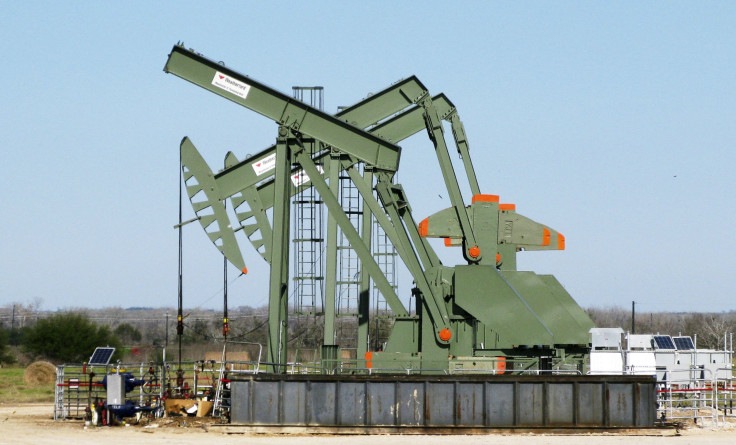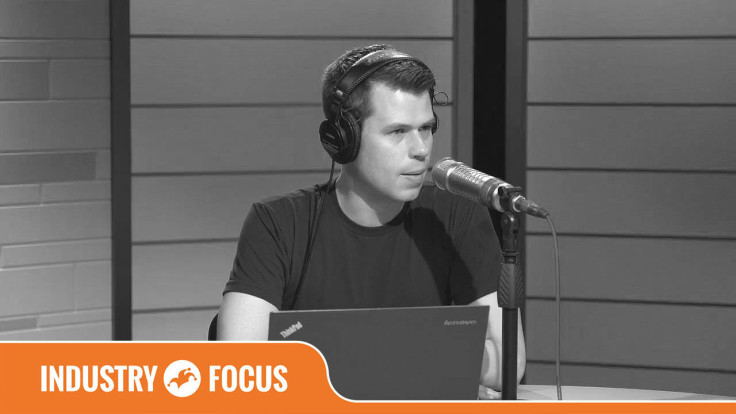How To Get The Price Of Oil Back Up To $100

This article originally appeared on the Motley Fool.
Oil is starting to recover from the depths of this most recent cycle, but it's nowhere near 2014's $100-per-barrel highs.
In this Industry Focus: Energy segment, Motley Fool analysts Sean O'Reilly and Taylor Muckerman talk about three factors that might possibly cause the price of oil to recover that much -- wars and rumors of wars, hugely increased demand as emerging markets take off, and natural disasters. Find out how likely each one is to really move the oil-price needle, what the worst-case scenario looks like for each, and more.
• Motley Fool Issues Rare Triple-Buy Alert
A full transcript follows the video.

3 Things That Might Pop Oil Back To $100 A Barrel
Taylor Muckerman: No. 3, wars and rumors of wars. We've had a few of those recently; hasn't done much to the price of oil. Kind of like how it was back with the Arab Spring, when prices were sky-high. They were too high to react to uprising in the Middle East. Now they're too low because production is capable of producing at prices like this, so prices aren't wavering on possible news out of Syria or nuclear war with North Korea, or anything of that nature.
Sean O'Reilly: So I'm going to play devil's advocate, if I may. We've gotten little hints of what might happen -- we've definitely had some conflict, that's mostly cold conflict. But, we got a hint a couple of months ago of what might happen if something really bad happens in a reasonably large producer. I'm, of course, referring to the Libyan oil-field outage. Their pipeline was in jeopardy, the field was still producing but if you can't move it, what are you going to do? But that was 300,000 barrels per day of oil production. And oil was higher after that than it is now after the Saudis and the Russians saying they want to cut production more.
Muckerman: Three hundred thousand barrels is around a quarter of what OPEC and Russia have been cutting, so that's a pretty decent amount.
O'Reilly: So it would be another quarter to a third. I would wonder what happens if a bigger producer has a problem.
Muckerman: I don't want to even think about that right now.
O'Reilly: Conjecture?
Muckerman: Yeah, it would be bad.
O'Reilly: Well, that's what he's saying. We don't know, but it could be bad.
Muckerman: It's definitely possible. Hopefully we're not involved.
O'Reilly: Oh, wow, I didn't know this. He cites with this, through the Persian Gulf, 17 million barrels of oil flow through the Strait of Hormuz every day.
Muckerman: Yeah, that's a critical choke point. That's no joke.
O'Reilly: That's 20% of global demand.
Muckerman: There's a similar strait in the South China Sea. If you look at both of those, it's pretty heavily fortified naval presences by multiple different countries in all of these areas. Isn't the Strait of Hormuz right around Iran?
O'Reilly: I think it's next to Egypt. Let's see.
Muckerman: We're both Googling it. Who can Google it faster? Oh, I got it.
O'Reilly: Is it next to Yemen?
Muckerman: My map is coming up in a foreign language. Iran, it's Iran, UAE, and Oman.
O'Reilly: What was I thinking of? Oh, the Suez Canal. My bad. That's also somewhat important, actually.
• This Stock Could Be Like Buying Amazon in 1997
Muckerman: It is, but not as important in terms of oil as the Strait of Hormuz itself. A lot going on there.
O'Reilly: This second to last one, the next point is the wrath of God, wrath of nature. We got a bit of that back in 2005, when Katrina hit. That hit Louisiana and South Texas, Houston, and that's somewhat of a problem, because that's where all of our hubs are.
Muckerman: Yeah, I think when you think about that, it might impact refining a little bit more, so that could drive the prices up, because they have to shut down refining facilities, so then there's a backlog, when they come back online --
O'Reilly: So gasoline prices would then go up, which would incentivize oil prices to go up, to refine it somewhere else.
Muckerman: Yeah, and then they have to catch up to production, once the refineries come back online. I think a hurricane generally hurts the refiners a little bit more.
O'Reilly: Yeah, this was a cool statistic. Katrina, when it hit in 2005, it knocked out 95% of the oil production in the Gulf of Mexico, and at the time, it supplied 1.5 million barrels per day, which was 30% of America's oil production back then. It's obviously lower now.
Muckerman: Ha, we were only producing 4.5 million barrels of oil per day back then.
O'Reilly: What if something bad happens -- act of God, earthquake, something crazy somewhere else that produces a couple million barrels per day?
Muckerman: It could have an impact, hard to tell how much, now that we're producing oil in a bit more of a widespread nature. But yeah, certainly other areas of the globe, if you had another nuclear disaster somewhere people might rely more on oil or natural gas for energy, certainly, anything's possible there. But I think that one is just too hard to predict.
O'Reilly: So is this last one. Drum roll, please. Matt DiLallo says the sleeping dragon demand awakes. Most people don't know this, but demand for oil globally is up 1.3 million barrels in 2017 over 2016. And it does make you wonder what happens if, I don't know, economic growth in India goes up a bunch next year or something.
Muckerman: Yeah, a billion people. What is that, three times more people than we have?
O'Reilly: I wonder if they sell Teslas down there.
Muckerman: I don't think they do. But I'm sure if they have infrastructure, electric cars can't be too far behind. Out of all of those, I would say OPEC overshooting or a war would be the top two that I would be worried about.
O'Reilly: I'll buy that.
Muckerman: Wrath of nature could, but --
O'Reilly: You recover after a month.
Muckerman: -- more unpredictable. The decline curves, yeah, that's definitely a worry, but I think we have enough wells in the United States and worldwide to overcome that, if prices creep up into the $60-$70 range. We'll find those extra 3 million barrels that we would need at the prices that would warrant it before it crept up to $100. I think it would take a combination of two or three of these five within a short amount of time to really ramp back up to $100 of a barrel. Because everyone would produce at $100 a barrel. Everyone.
• 7 of 8 People Are Clueless About This Trillion-Dollar Market
O'Reilly: Yeah. Heck, I would, I would go buy property and get a drill.
Muckerman: Everyone. And in America, we're producing as much as we can produce right now. OPEC and Russia, they're producing not as much. So the moment that prices justify it, that 1.2 million decline in their production could be turned on in such a short amount of time, compared to people having to go out and drill to find this oil, that I don't think prices are going to go back to $100.
O'Reilly: Because that's instantaneous, more or less.
Muckerman: Yeah, very much so, relatively instantaneous.
Sean O'Reilly has no position in any stocks mentioned. Taylor Muckerman owns shares of Tesla. The Motley Fool owns shares of and recommends Tesla. The Motley Fool has a disclosure policy.





















